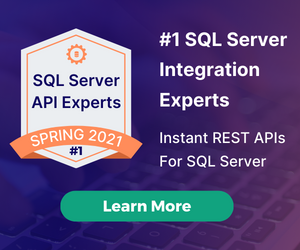How APIs and Businesses Work to Enable Business Agility
by Spencer Nguyen • May 27, 2022
APIs and businesses. Ever wonder what do APIs do in businesses? A better question is: what don't they do? We're living in the API economy — one where APIs rule business capabilities and open new revenue streams. Companies that leverage API technology innovate and respond to changes faster, providing value to customers and employees alike.
Let’s take a closer look at the different types of APIs, various commercial uses for APIs, and why it's more important than ever that your company has an API strategy.
What are APIs and How Do They Work?
APIs power the modern internet. APIs, or Application Programming Interfaces, are the building blocks of the internet — and they've fast become vital to business, which is evidenced by the many commercial uses for APIs. They allow different systems to talk to each other and share data. These interfaces represent a set of rules that govern how two systems can communicate with each other. The API provider defines the rules, and the API consumer follows these rules as they make API calls.
What Do APIs Do in Businesses?
APIs and businesses encompass a variety of partnerships and use cases, such as healthcare, financial services, and manufacturing. These industries use APIs to share data between two systems or to create a new interface for a system that already exists.
But why is this important?
Users expect a seamless experience no matter what site they visit or what system they use. If a customer visits an online store, they should be able to browse products, add an item to their shopping cart, and purchase the item. Depending on the organization's data framework, that information may exist in separate systems. Or the company may rely on an external service to process payments or on UPS to provide delivery dates. Platforms like DreamFactory allow you to unite APIs and businesses to blend this backend functionality and data together seamlessly, creating a user-friendly experience.
What Do APIs Do in Businesses to Speed Innovation?
The digital landscape evolves rapidly. Companies must innovate and find new ways to remain relevant among their competitors. Reusing existing code reduces development time and cost, increases code quality through testing, and enables new capabilities with a single click. In the enterprise software space, where large, complex systems can take years to develop, APIs and businesses together are game-changing. API-first strategies empower organizations to tap into an API ecosystem and build new features and services without having to build from scratch. This allows companies to focus on business growth.
APIs and Businesses: Enhancing the Customer Experience
What do APIs do in businesses? Improving customer sentiment in a fast-paced marketplace where consumers have access to more information than ever before means having a great product or service simply isn't enough. Staying competitive in this ever-changing landscape means businesses must remain focused on enhancing the customer experience. Social channels and review sites give consumers the power to shape how a brand is perceived, and a single negative review can cause serious damage.
APIs improve customer experience by personalizing customer interactions, producing a seamless cross-channel experience. For example, platforms like DreamFactory can help you implement APIs that join your website, mobile app, social channels, and more, allowing customers to access your information, products, and/or services in the way most convenient. Want to add voice recognition capabilities to your mobile app? A voice recognition API from a third-party provider in partnership with DreamFactory lets you add this functionality without having to develop an API from scratch.
APIs and Businesses: Enabling Automation and Streamlining Workflows
From scheduling meetings to collaborating with coworkers and managing enterprise resource planning (ERP) systems, business apps are critical for daily functions. Unfortunately, navigating between systems is inefficient and slows down your team. Connecting APIs and businesses streamlines processes and eliminates unnecessary touch points. For example, imagine connecting your email app to your CRM and automatically updating the CRM when adding new email contacts, or syncing the company calendar with these apps for automatically updated scheduling. APIs save both time and resources.
What Do APIs Do in Businesses: Robust Analytics and Reporting
Reporting is an essential aspect of any business, and data is the foundation of any report. Data analysis helps uncover hidden trends, find meaningful patterns, and discover actionable insights. This information is critical for informed decision-making. Leaders use the information to improve every aspect of the business.
Your business likely has a lot of data, but spread across multiple platforms and programs, the data is essentially siloed — separate and unable to provide any real actionable insights. Analyzing this data can help you measure such things as campaign effectiveness. By monitoring incoming traffic, it's possible to see which marketing efforts work and which ones fall short.
This information can be used in future marketing efforts and to improve experiences. The key to this type of insight is real-time reporting. API platforms like DreamFactory allow you to create APIs that enable real-time reporting functionality. Siloed data makes this difficult, but with APIs and businesses together, information from across the business's many programs and channels is consolidated and transformed for useful reporting.
Companies can no longer afford to be reactive. To stay competitive and grow their businesses, companies must be proactive, constantly monitoring their markets and customers and adjusting strategies accordingly.
APIs Open New Revenue Models
Monetization is a valuable API management function. There are many commercial uses for APIs. The API ecosystem lets software vendors make their products interoperable with other products, opening the door to new business models and revenue streams. Say a SaaS developer wants their program to be compatible with other SaaS programs. Enabling interoperability between their program and other vendor products — without needing to build their own API — can integrate managed APIs, increasing the value of both products, fueling joint growth.
DreamFactory APIs and Businesses: Instant API Generation to Rapidly Scale Your Business's Capabilities
Agility, innovation, and digital transformation initiatives are more crucial than ever before, and businesses need to keep pace with the competition. Every business process benefits when you use APIs in your business. DreamFactory is the instant, no-code API solution that lets companies create an API in minutes. Start your journey to seamless API integrations with a free trial of DreamFactory.
Related Reading
TL;DR - GET AN AI SUMMARY
AI SUMMARY
READY TO BUILD YOUR API?
See how DreamFactory can automatically generate REST APIs for your database in minutes.
Try DreamFactory FreeAs a seasoned content moderator with a keen eye for detail and a passion for upholding the highest standards of quality and integrity in all of their work, Spencer Nguyen brings a professional yet empathetic approach to every task.


























